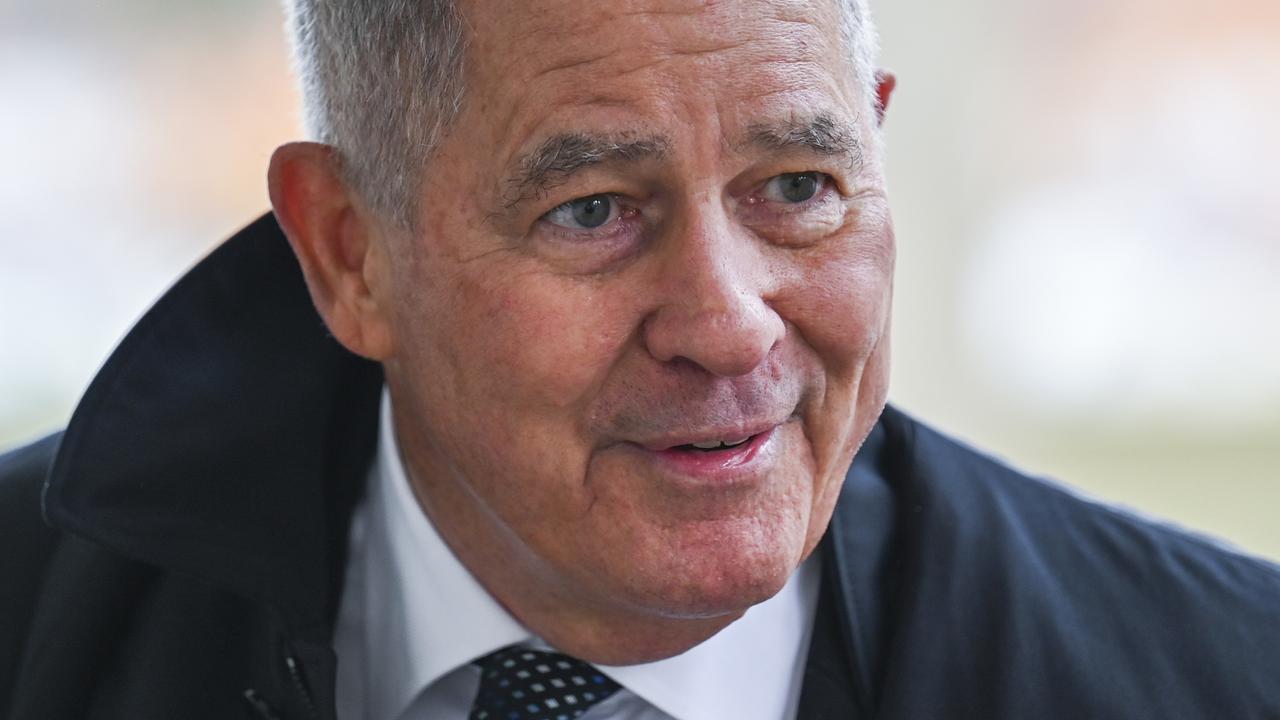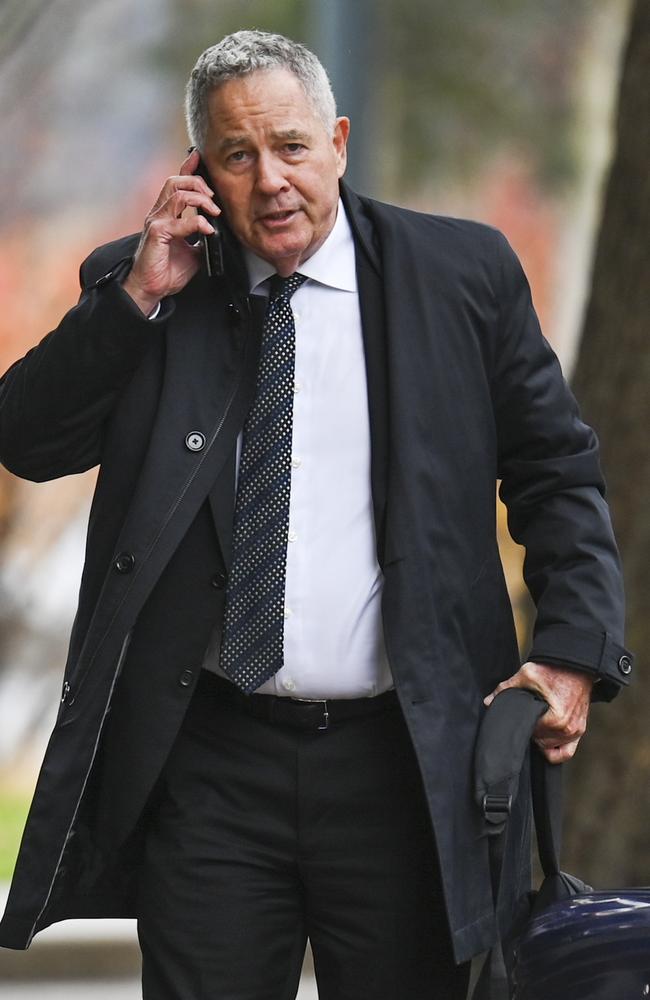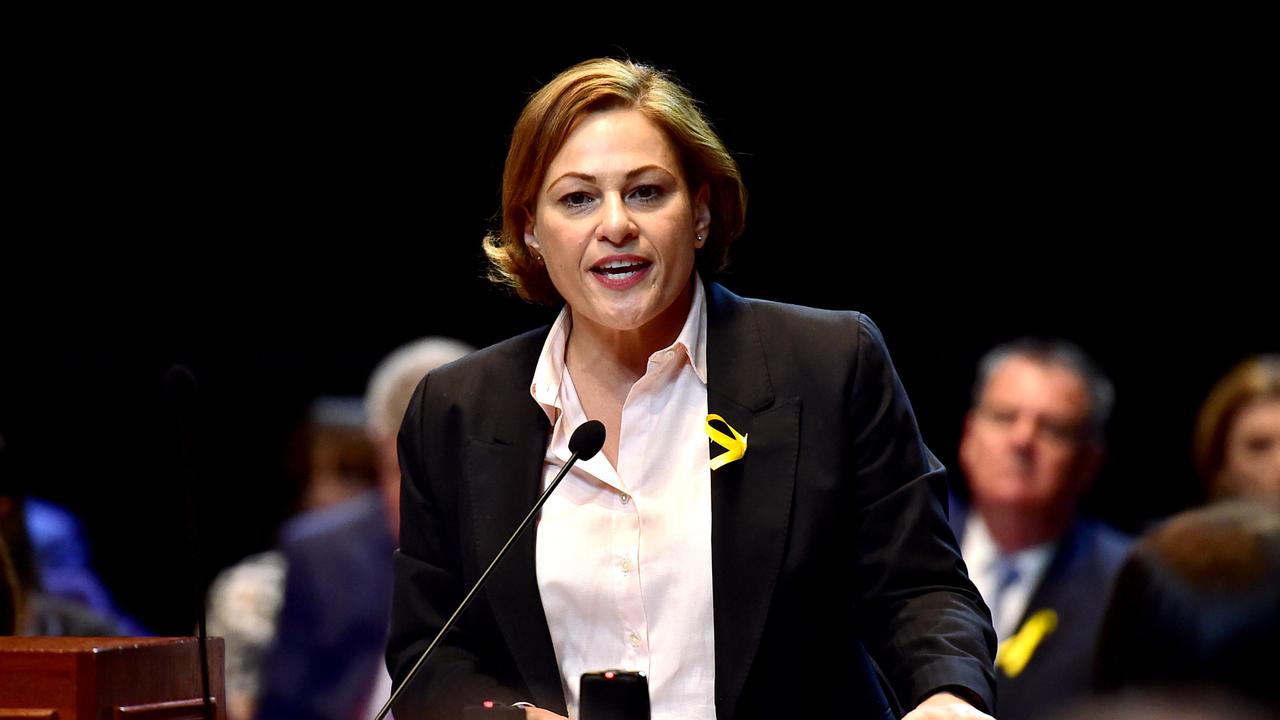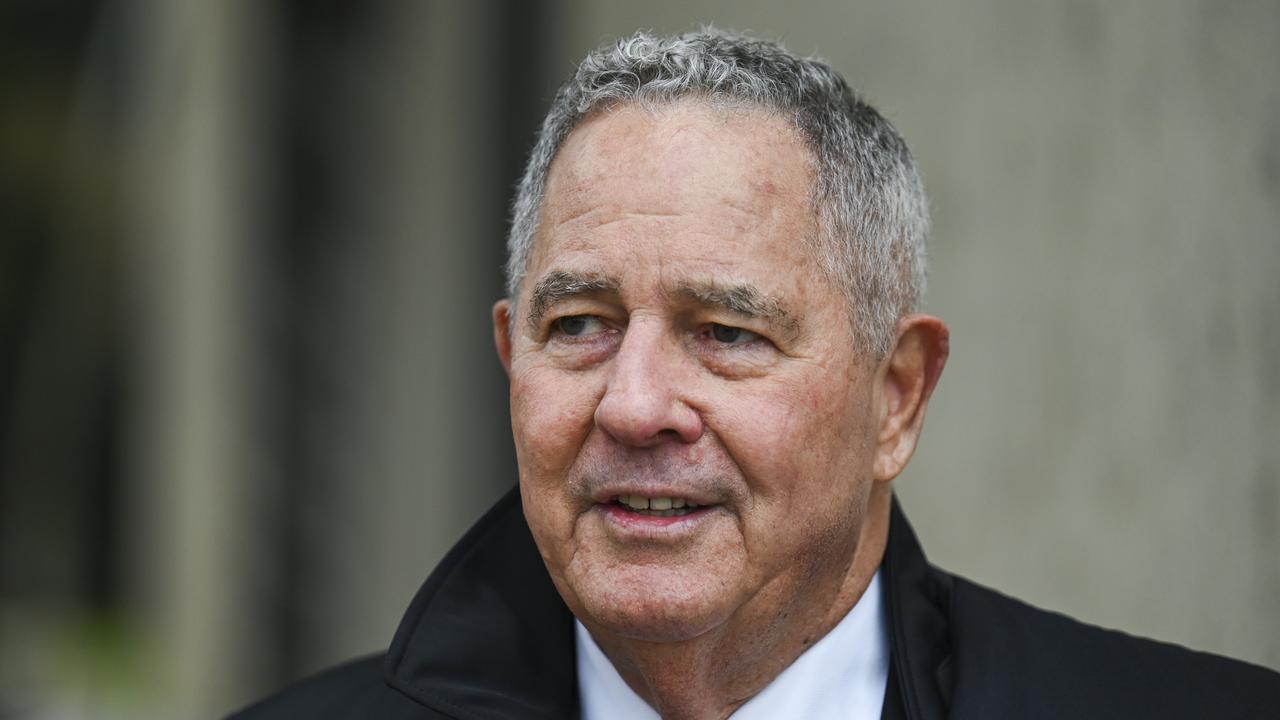Former Qld public trustee Peter Carne wins battle to keep CCC allegations of misconduct secret
Former public trustee Peter Carne has won a battle to keep secret the contents of a CCC report detailing allegations of misconduct relating to his time in office.

QLD Politics
Don't miss out on the headlines from QLD Politics. Followed categories will be added to My News.
Former public trustee Peter Carne has won a battle to keep secret the contents of a Crime and Corruption Commission report detailing allegations of misconduct relating to his time in office.
The High Court of Australia on Wednesday upheld a decision by Queensland’s Court of Appeal handed down in August last year which found the CCC report should not be published.
The decision will have wide-reaching ramifications, including for former state treasurer Jackie Trad, who is fighting a similar battle to suppress a CCC report regarding allegations she intervened in the independent recruitment process of a senior public servant during her tenure.
Ms Trad’s case had stalled in the Supreme Court of Queensland awaiting the outcome of Mr Carne’s High Court challenge.
The High Court today dismissed the CCC’s appeal against the Court of Appeal decision which found in favour of Mr Carne.
Counsel for Mr Carne had argued while the report did not make adverse findings that the former public trustee had committed corruption, it did detail the allegations made against him.
The CCC investigated claims that Public Trustee resources had been misused to fund Mr Carne’s personal study and submitted its investigation report to the parliamentary crime and corruption committee.

Mr Carne intervened to stop the report being tabled in the Legislative Assembly.
The CCC appealed to the High Court on two grounds, including arguing that the Parliament of Queensland (POQ) Act precluded the Court of Appeal from impeaching or questioning proceedings of the Legislative Assembly.
But the High Court rejected the argument, finding that the preparation and presentation of the report were not carried out within the scope of Legislative Assembly proceedings.
“Section 9 of the POQ Act was not satisfied because the report was not prepared for, or presented to, the Committee for purposes of transacting business of the Committee; it was prepared by the Commission and presented to the Committee for the Commission’s own purposes,” the HCA judgment said.
“The Committee did not authorise, and cannot be taken to have authorised, the preparation of the report.
“That may have been the case if the Committee had directed the Commission to investigate the complaint under (the relevant legislation).”
The High Court judges found that had the Committee made such a direction, the Commission would have been obliged to prepare the report, however that was not what occurred in Mr Carne’s case.
“Here the report was prepared and presented to the committee for the purpose of it being made public (by having it tabled in the Legislative Assembly),” the judges found.
“That purpose was that of the Commission. It was not that of the Committee.”
The HCA said the Committee was asked to consider giving a direction under a section of the Crime and Corruption (CC) Act that allows commission report to be tabled “that the parliamentary committee directs be given to the Speaker”.

The judges said the Committee was asked to consider giving that direction under the CC Act “and would no doubt have done so” had Mr Carne not commenced legal proceedings.
“The Committee agreed not to take that action until the conclusion of the proceedings,” the judgment said.
“Had the Committee commenced consideration of such a direction, the report may have been the subject of its business, but that point was not reached.
“The requisite connection is not established on the facts of this case.”
The CCC’s second ground of appeal argued that the COA’s finding the report was not a report to be tabled as per the CC Act also failed.
The High Court found there was “no provision of the CC Act which authorises a report of this nature”.
“The correctness of the Court of Appeal’s conclusion that the report is not a report for the purposes of (the relevant section) of the CC Act means that it is unnecessary to address an argument of the respondent, raised before the Court of Appeal and renewed in this court, to the effect that he was denied procedural fairness in the preparation of the report.”
The High Court was comprised of Chief Justice of Australia Susan Kiefel, Justice Stephen Gageler and Justice Jayne Jagot.
Queensland Speaker Curtis Pitt said in a statement that parliament was “digesting the decision” of the High Court to “fully understand the implications of decision for the operation of the Parliament of Queensland Act”.
“Particularly the connection between reports and other documents prepared for parliamentary committees and parliamentary privilege going forward,” he said.
The parliament was granted leave by the High Court to join the CCC’s appeal of the Carne decision.
LNP Justice spokesman Tim Nicholls said the High Court decision would mean the “antiseptic of sunlight” would now not be shined on government actions.
“Today is judgement day when it comes to openness and transparency of executive judgement here in Queensland,” he said.
“The issue, of course, is that investigations that are carried out by the Crime and Corruption Commission into allegations of misconduct, where there are not findings of corruption but nonetheless, serious lessons to be learned, will now not see the light of day.”
Mr Nicholls and the LNP would call on the government to amend the legislation to ensure the reports into “Labor mates” Mr Carne and former Deputy Premier Jackie Trad would be made public through the cover of parliamentary privilege.
“This is the essence of the system that was recommended by Tony Fitzgerald,” he said.
“This is the essence of the system that has been in place for over 20 years.”
Listing a number of high-profile investigations – including into former MP Gordon Nuttall and the Fake Tahitian Prince – Mr Nicholls said Queenslanders “wouldn’t have heard about these things” under this ruling.
“They would have been swept under the carpet, and those important lessons that Queenslanders deserve to know,” he said.
“It will be a dark day for Queensland if Annastacia Palaszczuk and Yvette D’ath turn their back on openness, transparency, and the recommendations of the Fitzgerald inquiry.”
TIMELINE OF AN INVESTIGATION
The CCC launched an investigation into Mr Carne in September 2018 following two complaints from an anonymous person alleging the public trustee “had been involved in corrupt conduct and was guilty of maladministration”.
In May 2019, the CCC referred information to the Attorney-General for consideration of whether Mr Carne had engaged in “misbehaviour” and whether to take disciplinary action.
The following month, the AG advised the Governor-in-Council had approved a suspension of Mr Carne’s appointment as public trustee pending the outcome of a show cause process.
“In November 2019 a show cause letter in respect of a number of allegations of misbehaviour under the Public Trustee Act was issued to (Mr Carne),” the High Court said.
“On 23 April 2020 the Commission wrote to the Acting Public Trustee, making a number of recommendations as to the operation of the Public Trust Office.
“The topics to which recommendations were addressed included: ethics, the complaints management system, and the training of staff in relation thereto; improving relationships between staff and executive leadership; the use of corporate credit cards; the taking of leave and applications for leave; the development of policies relating to the taking of external studies; and the development of codes of conduct as to standards of behaviour.”
Those recommendations and the referral to the AG were the only action taken by the CCC and in April 2020, it advised Mr Carne’s lawyers the investigation had concluded and that it did not propose any criminal proceedings be brought against him.

“Despite the Commission not proposing that any criminal action be taken and the Attorney-General’s consideration of disciplinary action against the respondent being terminated by reason of the respondent’s resignation, the Commission took steps to compose a report on the allegations and the investigations, which it sought to make available to the public,” the HCA judgment said.
“The course that it took was to seek to have the report tabled in the Legislative Assembly with the assistance of the Committee.”
In a June 2020 meeting the CCC chairperson said he believed the commission should prepare a report in relation to the Carne investigation “because it is high profile and it has been in the media”.
“He said that after the show cause process had taken its course, the Commission ‘probably should articulate some of the concerns that [it] had’,” the court wrote.
Mr Carne resigned from his position on July 31, 2020, bringing an end to the show cause process.
In September that year, the CCC sent a draft report to Mr Carne’s solicitors and invited him to comment and the following month, the commission sent a further copy of the report, advising it would seek a direction from the committee to have the report given to the speaker.
“The Report differed from the earlier draft in that, relevantly, it included a foreword by the Chairperson of the Commission which spoke at some length about standards of conduct on the part of public officials who held positions of trust,” the court wrote.
“Given that the respondent was identified in the Report as the public official whose conduct was the subject of allegations and investigation, the foreword would be understood to be directed to him and to be highly critical of him, although the body of the Report contained no findings of corrupt conduct against him.”
The report also detailed the anonymous complaint, allegations and the investigation into Mr Carne.
“In a section entitled ‘Referrals to other agencies and outcomes’ the Report spoke of the Commission’s communication to the Attorney-General concerning possible disciplinary proceedings, the show cause process and the respondent’s later resignation,” the judges wrote.
“In the following section, ‘Discussion and recommendations’, it talked about the need for supervision of executives (including the Public Trustee), matters arising from the investigation relating to the respondent, and the recommendations the Commission had made to the Public Trust Office.”
In October 2020, Mr Carne brought an injunction in the Supreme Court of Queensland seeking to prevent the publication of the report, prompting the almost three-year court battle.



